Abstract
We describe a non-progressive choreo-athetoid disorder of early onset, present in three families. There were no appreciable abnormalities in pregnancy, during the perinatal period, or in infancy. In each case the family history suggested transmission as an autosomal dominant trait, the gene showing diminished penetrance. Other families have been reported with the disorder and such titles as benign familial chorea, familial essential (benign chorea, or hereditary non-progressive chorea of early onset have been given to it. Our experience suggests that this is not a rare disorder, and that it is one likely to present in the paediatric age group; correct diagnosis is important so that unnecessary investigations are not undertaken, genetic counselling can be given, and proper management advice offered to families and schools.
Full text
PDF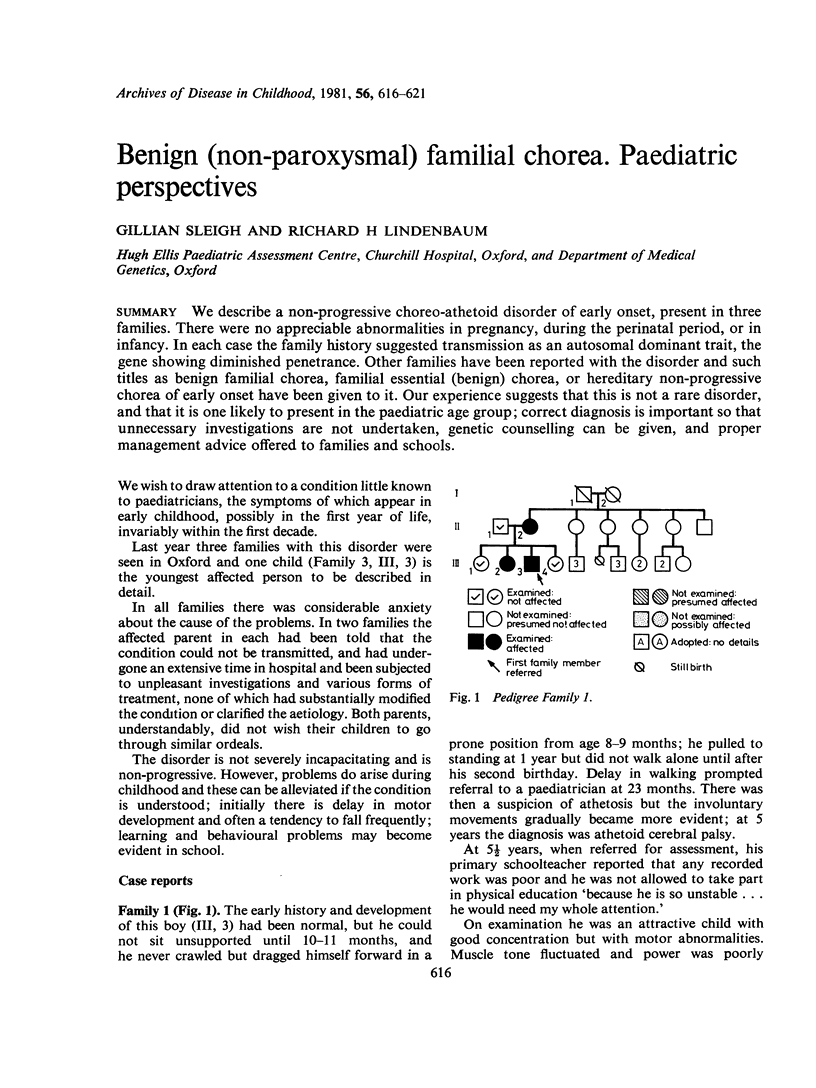
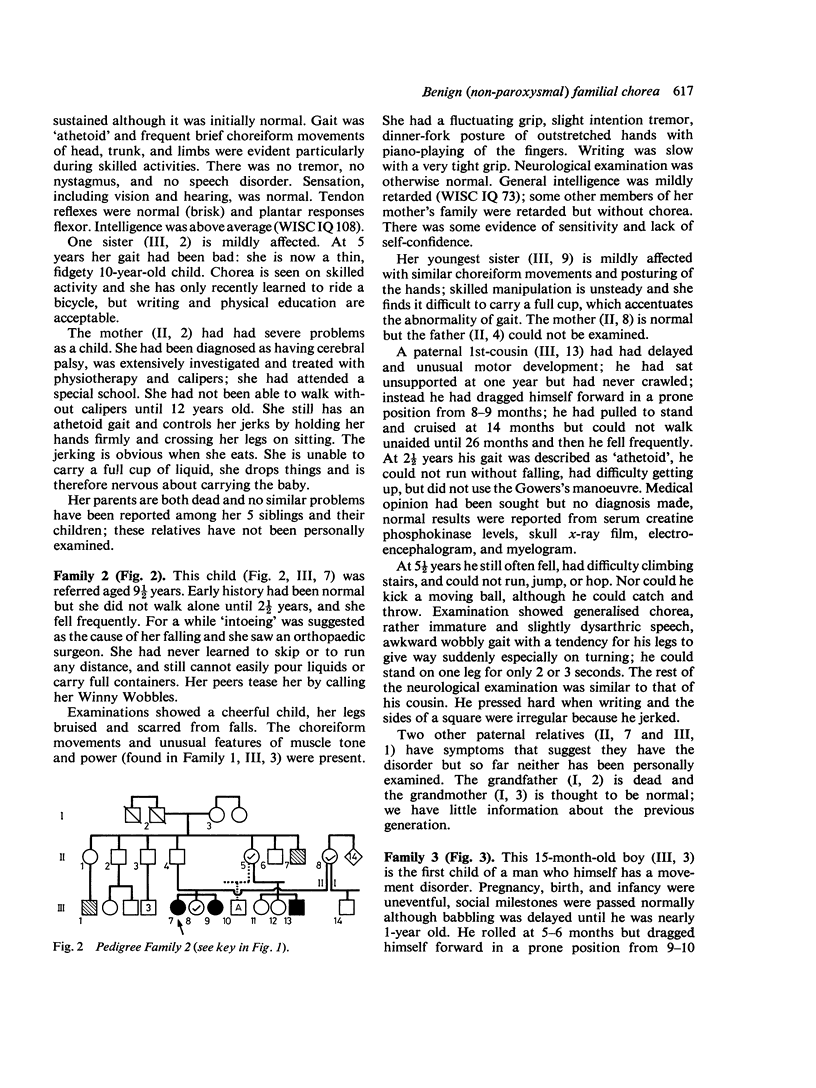
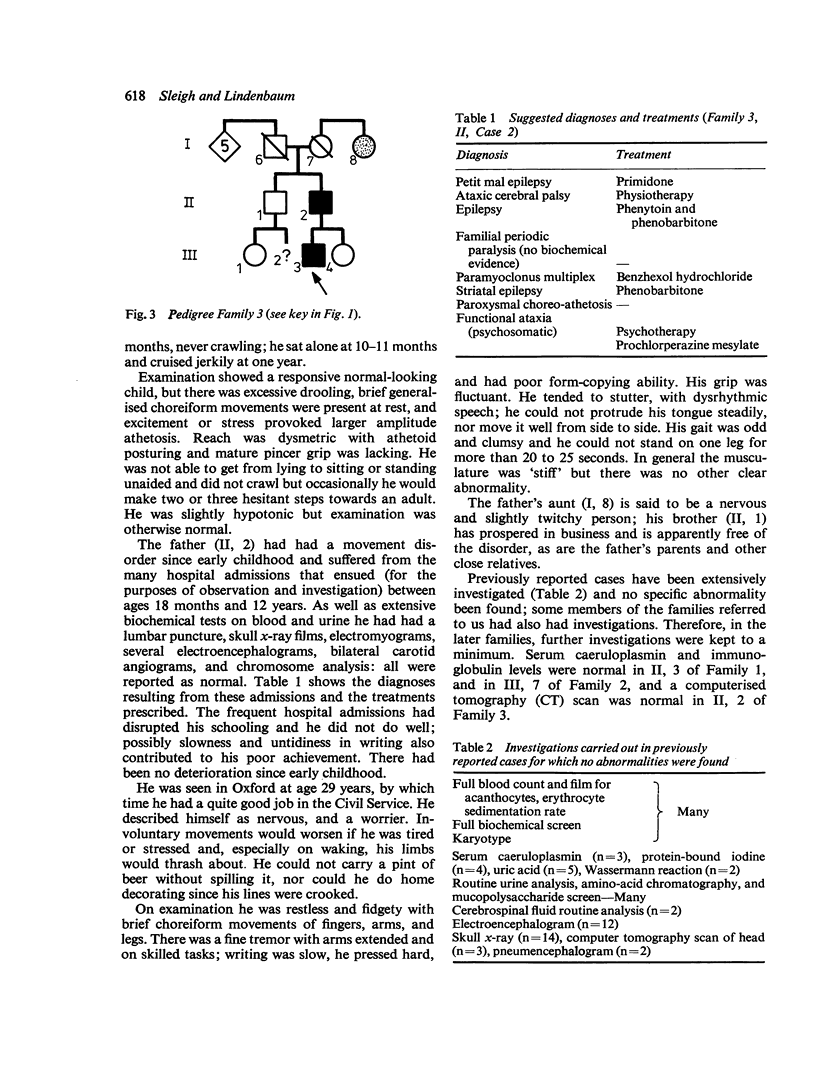
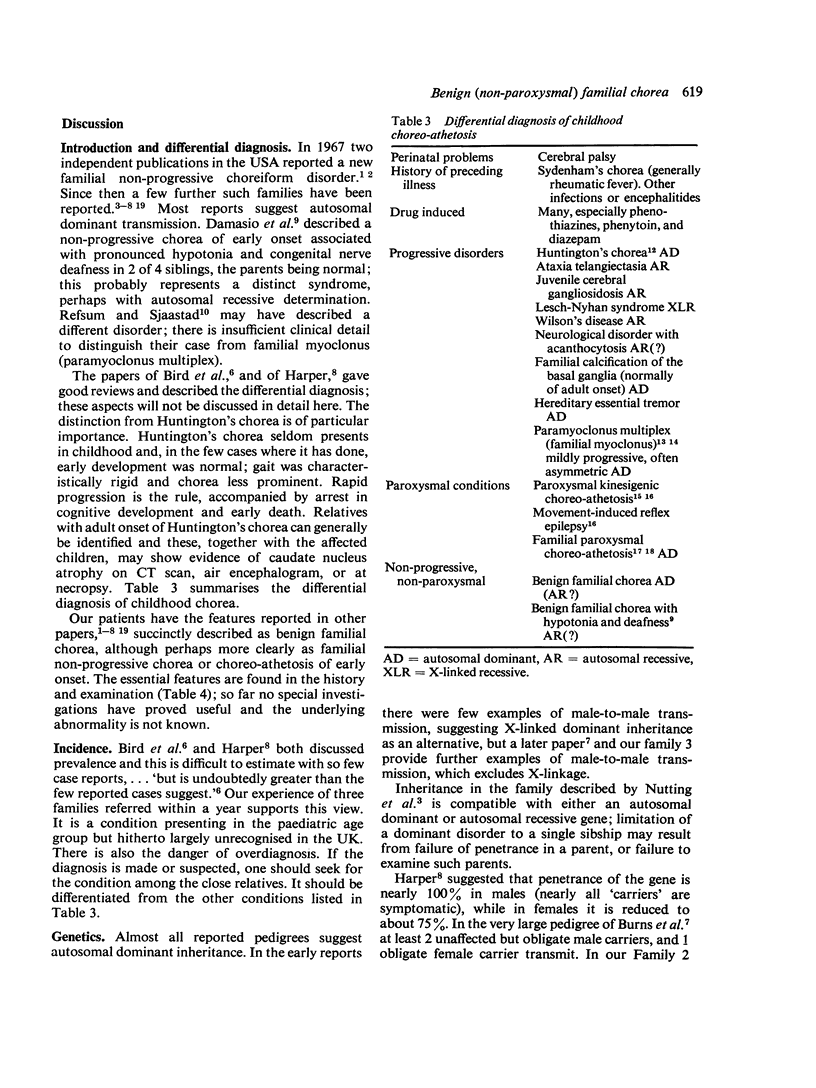
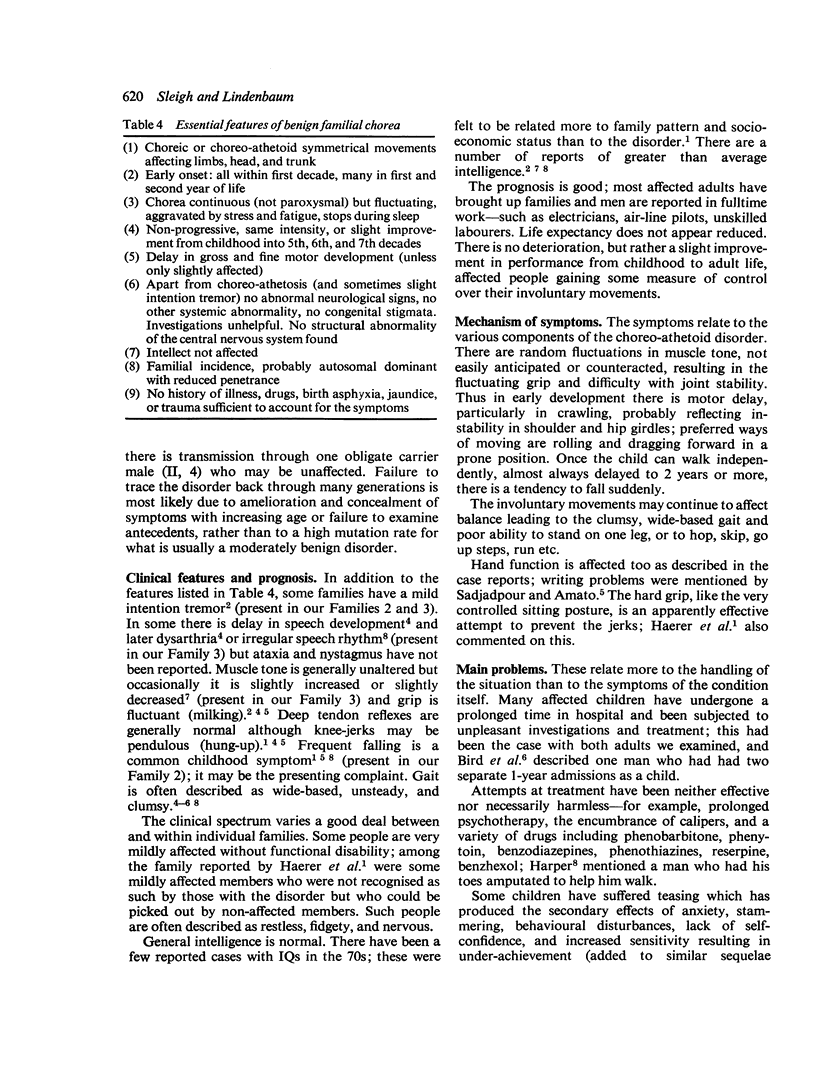
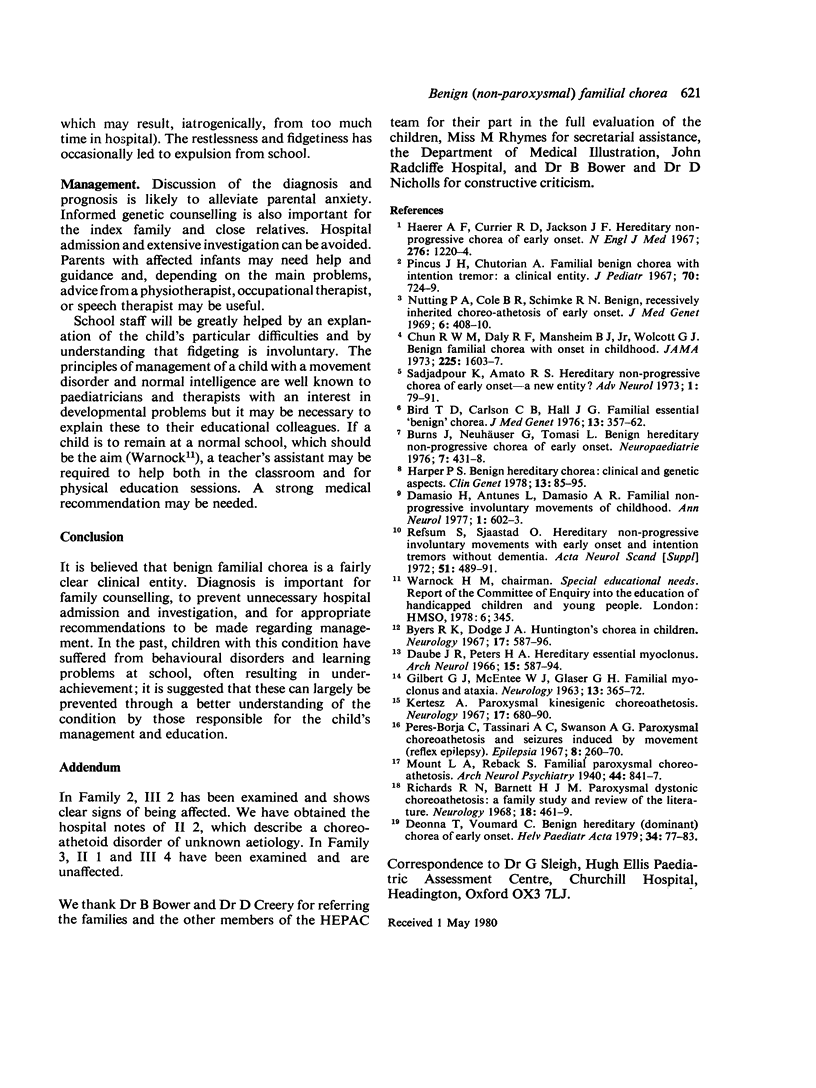
Selected References
These references are in PubMed. This may not be the complete list of references from this article.
- Bird T. D., Carlson C. B., Hall J. G. Familial essential ("benign") chorea. J Med Genet. 1976 Oct;13(5):357–362. doi: 10.1136/jmg.13.5.357. [DOI] [PMC free article] [PubMed] [Google Scholar]
- Burns J., Neuhäuser G., Tomasi L. Benign hereditary non-progressive chorea of early onset. Clinical genetics of the syndrome and report of a new family. Neuropadiatrie. 1976 Nov;7(4):431–438. doi: 10.1055/s-0028-1091643. [DOI] [PubMed] [Google Scholar]
- Byers R. K., Dodge J. A. Huntington's chorea in children. Report of four cases. Neurology. 1967 Jun;17(6):587–596. doi: 10.1212/wnl.17.6.587. [DOI] [PubMed] [Google Scholar]
- Chun R. W., Daly R. F., Mansheim B. J., Jr, Wolcott G. J. Benign familial chorea with onset in childhood. JAMA. 1973 Sep 24;225(13):1603–1607. [PubMed] [Google Scholar]
- Damasio H., Antunes L., Damasio A. R. Familial nonprogressive involuntary movements of childhood. Ann Neurol. 1977 Jun;1(6):602–603. doi: 10.1002/ana.410010619. [DOI] [PubMed] [Google Scholar]
- Daube J. R., Peters H. A. Hereditary essential myoclonus. Arch Neurol. 1966 Dec;15(6):587–594. doi: 10.1001/archneur.1966.00470180027003. [DOI] [PubMed] [Google Scholar]
- Deonna T., Voumard C. Benign hereditary (dominant) chorea of early onset. Helv Paediatr Acta. 1979 Feb;34(1):77–83. [PubMed] [Google Scholar]
- Haerer A. F., Currier R. D., Jackson J. F. Hereditary nonprogressive chorea of early onset. N Engl J Med. 1967 Jun 1;276(22):1220–1224. doi: 10.1056/NEJM196706012762202. [DOI] [PubMed] [Google Scholar]
- Harper P. S. Benign hereditary chorea. Clinical and genetic aspects. Clin Genet. 1978 Jan;13(1):85–95. doi: 10.1111/j.1399-0004.1978.tb04133.x. [DOI] [PubMed] [Google Scholar]
- Kertesz A. Paroxysmal kinesigenic choreoathetosis. An entity within the paroxysmal choreoathetosis syndrome. Description of 10 cases, including 1 autopsied. Neurology. 1967 Jul;17(7):680–690. doi: 10.1212/wnl.17.7.680. [DOI] [PubMed] [Google Scholar]
- Nutting P. A., Cole B. R., Schimke R. N. Benign, recessively inherited choreo-athetosis of early onset. J Med Genet. 1969 Dec;6(4):408–410. doi: 10.1136/jmg.6.4.408. [DOI] [PMC free article] [PubMed] [Google Scholar]
- Perez-Borja C., Tassinari A. C., Swanson A. G. Paroxysmal choreoathetosis and seizures induced by movement (reflex epilepsy). Epilepsia. 1967 Dec;8(4):260–270. doi: 10.1111/j.1528-1157.1967.tb04442.x. [DOI] [PubMed] [Google Scholar]
- Pincus J. H., Chutorian A. Familial benign chorea with intention tremor: a clinical entity. J Pediatr. 1967 May;70(5):724–729. doi: 10.1016/s0022-3476(67)80322-6. [DOI] [PubMed] [Google Scholar]
- Refsum S., Sjaastad O. Hereditary non-progressive involuntary movements with early onset and intention tremors, without dementia. Acta Neurol Scand Suppl. 1972;51:489–491. [PubMed] [Google Scholar]
- Richards R. N., Barnett H. J. Paroxysmal dystonic choreoathetosis. A family study and review of the literature. Neurology. 1968 May;18(5):461–469. doi: 10.1212/wnl.18.5.461. [DOI] [PubMed] [Google Scholar]


